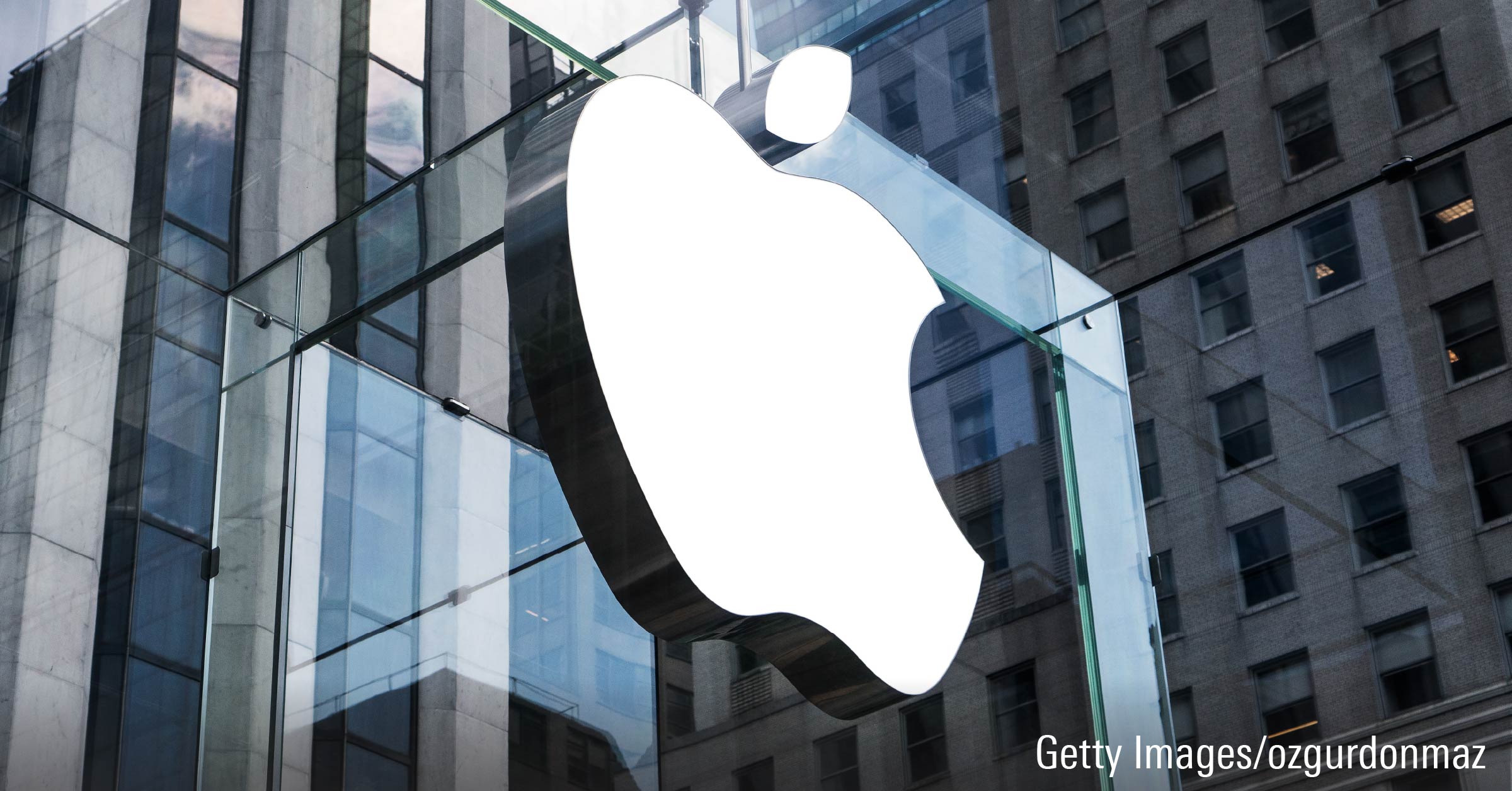What to Expect at Apple’s Annual Meeting
A look at the 8 proposals under consideration at the unofficial proxy-voting season kickoff.

The annual meeting for Apple AAPL informally kicks off the proxy-voting season. If Apple’s proxy is any indication, expect investors to be looking closely at artificial intelligence, pay equity, and compensation.
Apple’s proxy contains eight proposals. Three are from management, asking investors to elect Apple’s directors, to ratify its accounting firm appointment, and to approve executive compensation. You can read the Apple proxy here.
You might expect some pushback on Apple’s high compensation. Morningstar Sustainalytics rates Apple as an “outperformer” on corporate governance, yet notes: “The long service of all members of the remuneration committee together with Apple CEO Timothy Cook’s long tenure may raise concerns over the committee’s ability to independently fulfill its role in the oversight of executive compensation.”
This year, investors will focus more heavily on compensation, particularly after a Delaware court voided Tesla CEO Elon Musk’s large pay package, predicts Jackie Cook, director of Morningstar Sustainalytics’ Stewardship Services team.
The remaining five proposals are from shareholders.
- AI has enormous implications for corporate boards and corporate governance. A proposal by the AFL-CIO Equity Index Funds asks Apple to prepare a transparency report on its use of AI in its business operations and disclose any ethical guidelines Apple has adopted regarding the use of AI. According to the proposal, adopting AI technology “raises a number of significant social policy issues” around the use of AI in hiring, potentially creating mass layoffs, violating customer privacy, and generating “deepfake” media content that could influence political elections. The proposal states, “Adopting an ethical framework for the use of AI technology will strengthen our company’s position as a responsible and sustainable leader in its industry. By addressing the ethical considerations of AI in a transparent manner, we can build trust among our company’s stakeholders and contribute positively to society.”
Apple advises investors to vote against the proposal, claiming the report is extremely broad and could hurt its competitive position by forcing it to disclose strategic plans.
The proposal is important because of the rapid adoption of generative AI technologies across workplaces, says Cook of Morningstar Sustainalytics. “Cybersecurity risk is amplified by AI technologies,” says Cook, who notes that new SEC cybersecurity risk disclosure rules specifically ask for reporting on board oversight.
- Racial and pay equity. A proposal by Anmol Mehra and Arjuna Capital asks Apple to report on median pay gaps across race and gender, “including associated policy, reputational, competitive, and operational risks.” The proposal defines racial/gender pay gaps as “the difference between nonminority and minority/male and female median earnings expressed as a percentage of nonminority/male earnings.” The proposal asserts that pay inequities “pose substantial risk to companies and society at large. … Actively managing pay equity is associated with improved representation, and diversity is linked to superior stock performance and return on equity.”
Apple recommends that shareholders vote against the proposal, asserting that “we already have a comprehensive approach to promoting pay equity and diverse representation at every level of the company” and that it has achieved different kinds of pay equity.
The proposal could receive strong support, says Morningstar Sustainalytics’ Cook. Last year, shareholders at Nike NKE and Oracle ORCL asked both companies for gender and racial pay-gap reporting. These proposals earned majority support from independent shareholders, meaning nonfamily and noninsider shareholders.
- Anti-ESG. These are the three remaining proposals:
- The National Center for Public Policy Research asks Apple to report on potential risks associated with omitting the words “viewpoint” and “ideology” from its written equal employment opportunity policy. Apple recommends voting against the proposal, saying that a report on the potential risks of omitting the words “viewpoint” and “ideology” would not “provide material additional information to shareholders.”
- The American Family Association asks Apple to evaluate the standards and procedures Apple uses to curate app content on its various platforms and how Apple manages disputes between government interests and user rights. Apple recommends voting against the proposal, saying that it already provides information about apps and government orders.
- The National Legal and Policy Center asks Apple to report on the congruency of its privacy and human rights policy positions, especially in war zones and under oppressive regimes. Apple recommends voting against the proposal, saying that it is “transparent about our approach to complex situations and prioritizing engagement; and our robust policies and disclosures are publicly available.”
The three proposals are “anti-ESG,” which are typically opposed to sustainability measures by companies. Often, these proposals “look very similar” to pro-sustainability ballot items, says Morningstar’s Cook. Such proposals, however, get low support. In 2023, support ranged between 1% and 4%.
“Most investors recognize that so-called ‘anti-ESG’ proponents—individuals and opaquely funded grassroots organizations—do not share their vision for sustainable business and have become suspicious of their motives,” Cook added. “While the resolution itself may seem reasonable, the proponent’s supporting statement may contain subtle, or not-so-subtle, attacks on companies’ sustainability efforts.”
Lindsey Stewart, Morningstar’s director of investment stewardship research, adds, “Investors need to be careful, read the resolution properly, read the supporting statement properly, and find out the proponents.”
The author or authors do not own shares in any securities mentioned in this article. Find out about Morningstar’s editorial policies.

/s3.amazonaws.com/arc-authors/morningstar/d53e0e66-732b-4d50-b97a-d324cfa9d1f8.jpg)
/cloudfront-us-east-1.images.arcpublishing.com/morningstar/NNGJ3G4COBBN5NSKSKMWOVYSMA.png)
/cloudfront-us-east-1.images.arcpublishing.com/morningstar/6BCTH5O2DVGYHBA4UDPCFNXA7M.png)
/cloudfront-us-east-1.images.arcpublishing.com/morningstar/EBTIDAIWWBBUZKXEEGCDYHQFDU.png)
:quality(80)/s3.amazonaws.com/arc-authors/morningstar/d53e0e66-732b-4d50-b97a-d324cfa9d1f8.jpg)